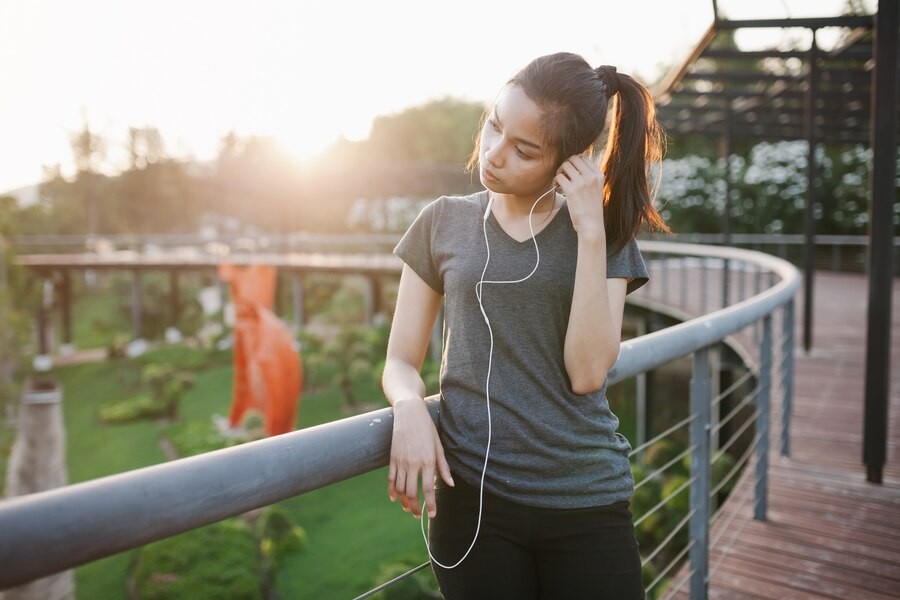Exercise is not only crucial for physical wellness; it also has tremendous benefits for mental health. Engaging in regular physical activity can help reduce stress, lift your mood, decrease the chances of depression and anxiety, enhance sleep quality, build self-confidence, and sharpen cognitive abilities.
Types of Exercise That Benefit Mental Health
Several types of exercise are particularly helpful for improving mental well-being, including:
Yoga
Yoga combines controlled breathing, meditation, and specific body postures. Practicing yoga consistently can help calm the mind, alleviate stress, and improve sleep quality.
Moreover, yoga’s stretches and focus on breathing bring a sense of relaxation and emotional balance, which can help relieve symptoms of anxiety and depression.
Jogging and Running
Jogging and running are among the easiest and most effective exercises for boosting mental health. During a run, the body releases endorphins, often called the “happiness hormones.”
Endorphins released during running enhance mood and create positive feelings post-workout, often referred to as a “runner's high”—a feeling of euphoria following a run.
Running outdoors can further reduce stress and depression symptoms. The fresh, peaceful natural surroundings allow for self-reflection, focus, and enhanced concentration.
Walking
In addition to jogging or running, walking is a gentle exercise with considerable benefits for mental health. Walking in outdoor spaces like parks or urban forests can have a calming effect on the mind.
Taking a 30-minute walk can help boost mood, reduce stress, and provide an escape from routine pressures.
Swimming
Swimming is a soothing and invigorating activity. When swimming, the body feels light and unrestricted, which helps reduce muscle tension and ease the mind.
The sensation of water flowing over the body promotes relaxation and improves mood. Swimming’s full-body movement can ease symptoms of anxiety and depression while fostering positive energy.
Cycling
Cycling, especially outdoors, is an effective way to relieve stress. Similar to running and walking, cycling promotes endorphin release, helping to counter negative moods.
Physical Exercises
Physical exercises such as aerobics and weight lifting not only build physical strength but also alleviate symptoms of depression and anxiety by stimulating endorphin and dopamine release.
Regular fitness routines can also enhance self-esteem and body image, which are often linked to physical appearance.
Physical exercise not only contributes to physical health but also offers many mental health benefits. If you’re experiencing mental health concerns, consider consulting a healthcare professional. You can also use the Ai Care consultation feature by downloading the app from the App Store or Play Store.
Interested in more health tips, first aid advice, and home remedies? Click here!
- dr Nadia Opmalina
Health Direct (2023). Exercise and mental health. Available from: https://www.healthdirect.gov.au/exercise-and-mental-health
Help Guide.org (2024). The Mental Health Benefits of Exercise. Available from: https://www.helpguide.org/wellness/fitness/the-mental-health-benefits-of-exercise
Mental Health Foundation. How to look after your mental health using exercise. Available from: https://www.mentalhealth.org.uk/explore-mental-health/publications/how-look-after-your-mental-health-using-exercise
Harvard Medical School (2024). Yoga for better mental health. Available from: https://www.health.harvard.edu/staying-healthy/yoga-for-better-mental-health
WebMD (2023). Mental Health Benefits of Running. Available from: https://www.webmd.com/fitness-exercise/how-running-affects-mental-health
Kimberly Holland (2020). What Exactly Is a Runner’s High?. Available from: https://www.healthline.com/health/runners-high
WebMD (2024). Mental Benefits of Walking. Available from: https://www.webmd.com/fitness-exercise/mental-benefits-of-walking
Bethany Cadman (2023). Physical and mental benefits of swimming. Available from: https://www.medicalnewstoday.com/articles/321496
Samantha Green, MD, CCFP, et all (2021). Cycling for health. Available from: https://www.ncbi.nlm.nih.gov/pmc/articles/PMC8516176/












